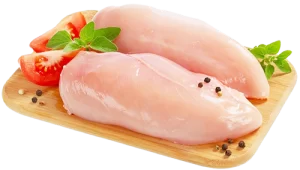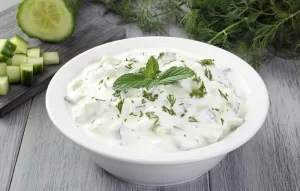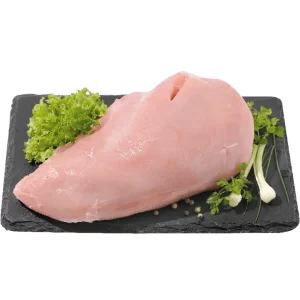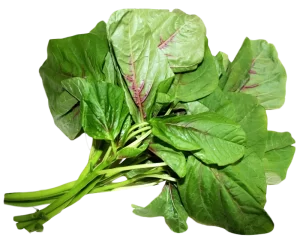Maintaining a balanced diet that is rich in protein while being low in both carbohydrates and fat is crucial for those seeking to achieve their health and fitness goals. Protein plays a vital role in building and repairing tissues, supporting muscle growth, and promoting satiety. To help you make informed dietary choices, this article presents a list of the top 10 high-protein, low-carb, and low-fat foods that will nourish your body and support your overall well-being.
1. Skinless Chicken Breast:

Skinless chicken breast is a lean source of protein, low in fat, and virtually carbohydrate-free. Packed with essential amino acids, it aids in muscle development and repair. Opt for grilled, baked, or roasted chicken breast to minimize added fats.
2. Greek Yogurt:

Greek yogurt is an excellent protein-rich option with significantly lower carbohydrates and fat content compared to regular yogurt. It’s packed with calcium, probiotics, and essential nutrients. Choose plain, unsweetened varieties and add fresh fruits or nuts for added flavor and texture.
3. Egg Whites:

Egg whites are incredibly versatile and boast high-quality protein without the fat and carbs found in egg yolks. They are a great addition to omelets, scrambles, or even as a protein-packed snack.
4. Fish (Salmon, Tuna, and Sardines):

Fish, especially fatty fish like salmon, tuna, and sardines, is an excellent source of protein and healthy omega-3 fatty acids. These nutrients promote heart health, reduce inflammation, and support brain function.
5. Cottage Cheese:

Cottage cheese is an incredibly versatile dairy product that is low in carbs and fat while providing a generous amount of protein. It also contains calcium and other essential nutrients. Enjoy it as a snack or use it in recipes as a substitute for higher-fat ingredients.
6. Quinoa:

Quinoa is a nutrient-dense, gluten-free grain that offers a complete protein profile. It contains all nine essential amino acids and is an excellent alternative to carbohydrate-rich grains. Incorporate quinoa into salads, stir-fries, or as a side dish to increase your protein intake.
7. Edamame:

Edamame, or young soybeans, is a plant-based protein powerhouse that is low in carbs and fat. It’s an excellent option for vegetarians and vegans. Enjoy them as a snack, add them to salads, or incorporate them into stir-fries for a healthy protein boost.
8. Skinless Turkey Breast:

Similar to chicken breast, skinless turkey breast is an exceptional source of lean protein. It is low in fat and carbohydrates, making it an ideal choice for those aiming to reduce their calorie intake without compromising protein intake.
9. Lentils:

Lentils are legumes that are high in protein and fiber while being low in fat and carbohydrates. They are an affordable and versatile ingredient that can be used in soups, stews, salads, or as a vegetarian burger substitute.
10. Shrimp:

Shrimp is a delicious seafood option that is low in calories, fat, and carbohydrates while providing a good amount of protein. It is also a great source of selenium and omega-3 fatty acids. Enjoy grilled, sautéed, or in salads for a lean protein boost.
11. Tofu:

Tofu is a versatile plant-based protein option that is low in carbs and fat. It is rich in essential amino acids, iron, and calcium. Incorporate tofu into stir-fries, soups, or marinate and grill it for a tasty protein-rich meal.
12. Almonds:

Almonds are a nutritious snack that contains protein, healthy fats, and fiber. They are an excellent source of vitamin E, magnesium, and antioxidants. Keep portion sizes in mind due to their calorie density, but enjoy a handful of almonds as a satisfying and nourishing snack.
13. Whey Protein:

Whey protein powder is a convenient and highly bioavailable source of protein, making it an excellent option for athletes and individuals looking to supplement their protein intake. Choose high-quality whey protein powders with minimal added sugars and artificial ingredients.
14. Green Leafy Vegetables:

While not typically associated with high protein content, green leafy vegetables like spinach, kale, and broccoli contain a surprising amount of protein. They are low in calories, carbs, and fat while providing an array of essential vitamins, minerals, and antioxidants.
15. Chia Seeds:

Chia seeds are tiny powerhouses packed with protein, fiber, and healthy fats. They also provide essential omega-3 fatty acids and are highly versatile. Add chia seeds to smoothies, yogurt, or make a chia seed pudding for a nutritious and satiating snack.
16. Low-Fat Cottage Cheese:
Low-fat cottage cheese is a satisfying and protein-packed food that is low in carbs and fat. It can be enjoyed on its own, mixed with fruits for a healthy snack, or used in recipes as a substitute for higher-fat ingredients.
Incorporating these additional high-protein, low-carb, and low-fat foods into your diet will provide variety, nutrition, and support your health and fitness goals. Remember to personalize your choices based on your dietary preferences and any specific nutritional requirements.
Achieving a balanced diet that is high in protein while being low in carbs and fat is attainable with careful food choices. Incorporating these top 10 high-protein, low-carb, and low-fat foods into your diet will not only provide the necessary nutrients but also support your overall health and fitness goals. Remember to combine them with a variety of fruits, vegetables, and whole grains to ensure a well-rounded.
What Are The Side Effects Of High-Protein, Low-Carb Diet?
While a high-protein, low-carb diet can offer various health benefits, it’s essential to be aware of potential side effects and consider them when planning your dietary approach. Here are some potential side effects associated with a high-protein, low-carb diet:
1. Nutritional Imbalances:

Restricting carbohydrates can limit your intake of essential nutrients found in fruits, vegetables, whole grains, and legumes. This can lead to deficiencies in dietary fiber, vitamins, minerals, and antioxidants, which are vital for overall health and disease prevention.
2. Digestive Issues:

A sudden increase in protein consumption and reduction in carbohydrates can cause digestive discomfort. Some individuals may experience constipation, bloating, or changes in bowel movements due to inadequate fiber intake.
3. Ketosis:
Severely limiting carbohydrates can induce a metabolic state called ketosis. While some people aim to achieve ketosis for weight loss purposes, it may cause side effects such as bad breath, fatigue, nausea, and even nutrient deficiencies if not properly managed.
4. Increased Risk of Kidney Problems:
High-protein diets can put additional stress on the kidneys, as they are responsible for filtering and excreting the by-products of protein metabolism. Individuals with pre-existing kidney conditions should consult a healthcare professional before embarking on a high-protein diet.
5. Reduced Energy Levels:
Carbohydrates are the body’s primary source of energy. When carbs are limited, especially during intense physical activity or exercise, some individuals may experience fatigue, decreased athletic performance, and difficulty sustaining energy levels.
6. Adherence Challenges:
Following a strict high-protein, low-carb diet may be challenging for some people due to limited food choices and social restrictions. This can lead to feelings of deprivation, reduced enjoyment of meals, and difficulty maintaining the diet long-term.
7. Impact on Cholesterol Levels:
Depending on the protein sources chosen, a high-protein diet may result in increased consumption of saturated fats, which can raise LDL (bad) cholesterol levels. It is important to choose lean protein sources and incorporate healthy fats from sources like fish, nuts, and seeds.
8. Long-Term Health Risks:
Limited research exists on the long-term effects of high-protein, low-carb diets. Some studies suggest that excessive protein intake, particularly from animal sources, may be associated with an increased risk of certain health conditions, such as heart disease, certain cancers, and osteoporosis.
7 Day High Protein Low-Carb Meal Plan
Here’s a sample 7-day high-protein, low-carb meal plan to give you an idea of how you can structure your meals. This plan focuses on lean protein sources, non-starchy vegetables, and healthy fats while limiting high-carbohydrate foods. Remember to adjust portion sizes and ingredients based on your specific dietary needs and preferences.
Day 1:
Breakfast: Scrambled eggs with spinach, bell peppers, and feta cheese.
Snack: Greek yogurt with mixed berries.
Lunch: Grilled chicken breast salad with mixed greens, cherry tomatoes, cucumbers, and avocado.
Snack: Celery sticks with almond butter.
Dinner: Baked salmon with roasted asparagus and a side of cauliflower rice.
Dessert: Sugar-free jello with whipped cream.
Day 2:
Breakfast: Protein smoothie made with unsweetened almond milk, protein powder, spinach, and a tablespoon of almond butter.
Snack: Hard-boiled eggs.
Lunch: Grilled shrimp skewers with a side of steamed broccoli and a small side salad.
Snack: Beef jerky.
Dinner: Turkey meatballs served with zucchini noodles and marinara sauce.
Dessert: Chia seed pudding made with unsweetened almond milk and topped with berries.
Day 3:
Breakfast: Vegetable omelet made with egg whites, spinach, mushrooms, and feta cheese.
Snack: Cottage cheese with sliced cucumbers.
Lunch: Grilled chicken breast with roasted Brussels sprouts and a side of quinoa.
Snack: Mixed nuts.
Dinner: Baked cod with steamed green beans and a side of mashed cauliflower.
Dessert: Dark chocolate squares.
Day 4:
Breakfast: Cottage cheese and sliced almonds topped with raspberries.
Snack: Turkey or chicken breast slices wrapped in lettuce leaves.
Lunch: Tuna salad made with canned tuna, Greek yogurt, celery, and lemon juice, served on a bed of mixed greens.
Snack: Sugar snap peas with hummus.
Dinner: Grilled steak with sautéed mushrooms and a side of roasted cauliflower.
Dessert: Protein ice cream made with protein powder, unsweetened almond milk, and a dash of vanilla extract.
Day 5:
Breakfast: Vegetable frittata made with egg whites, bell peppers, onions, and feta cheese.
Snack: Sliced turkey breast with cucumber slices.
Lunch: Baked chicken breast with steamed broccoli and a side of quinoa.
Snack: Celery sticks with cream cheese.
Dinner: Baked cod with lemon garlic sauce, served with a side of roasted asparagus.
Dessert: Sugar-free yogurt with sliced almonds.
Day 6:
Breakfast: Protein pancakes made with protein powder, egg whites, and topped with berries.
Snack: String cheese.
Lunch: Grilled shrimp salad with mixed greens, cherry tomatoes, cucumbers, and avocado.
Snack: Beef jerky.
Dinner: Turkey chili made with lean ground turkey, diced tomatoes, bell peppers, and kidney beans (in moderation).
Dessert: Baked apples topped with cinnamon and a dollop of Greek yogurt.
Day 7:
Breakfast: Smoked salmon with cucumber slices and cream cheese.
Snack: Hard-boiled eggs.
Lunch: Grilled chicken breast with roasted Brussels sprouts and a side of cauliflower rice.
Snack: Almond butter with celery sticks.
Dinner: Baked pork tenderloin with roasted asparagus and a side of sautéed spinach.
Dessert: Mixed berries with a dollop of whipped cream.
Remember to stay hydrated throughout the day.
- The Benefits of Applying Curd On Hair
- How to Cure Lost Voice Overnight? Effective Home Remedies to Cure a Lost Voice Overnight
- How To Cure Lactose Intolerance? Strategies and Lifestyle To Managing Lactose Intolerance
- The Health Benefits of Onion
- 11 Effective Home Remedies for Healing Anal Fissures
- How To Cure Neck Pain Fast At Home Remedies?
- Pumpkin Health Benefits For Women And Men
- How To Eat Chia Seeds | A Guide on How to Eat Chia Seeds for Optimal Nutrition and Flavorful Wellness
- What Is Moringa and its Health Benefits?
- Lion Mane Powder: Lion Mane Powder for Maximum Results, Side Effects















